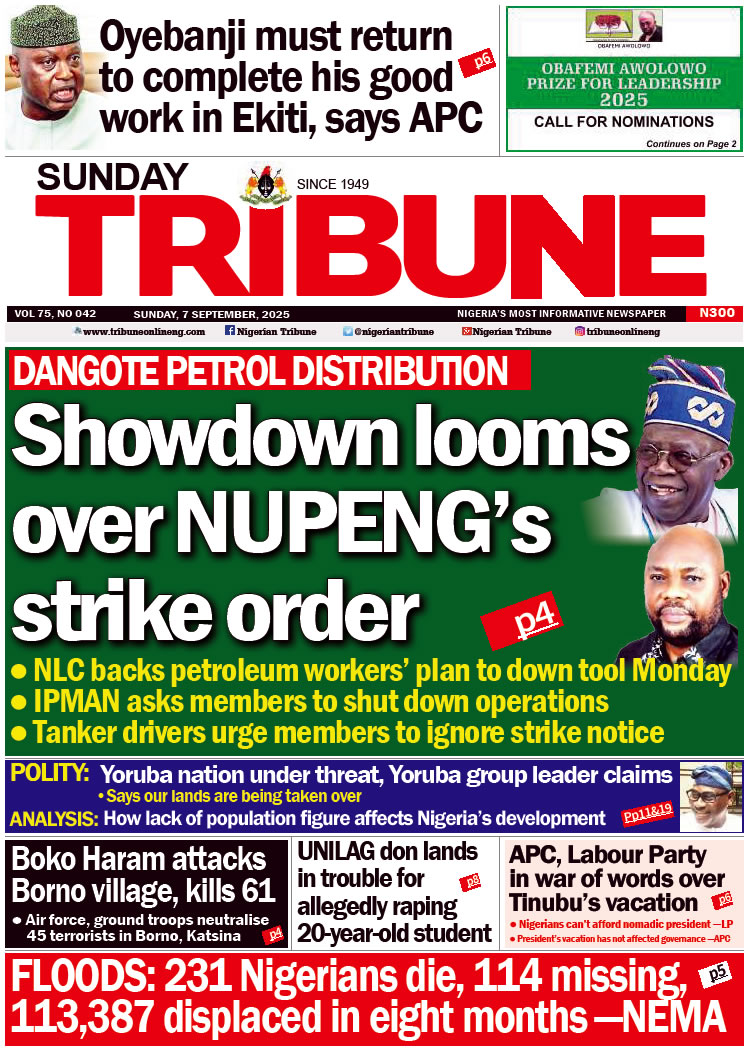Renowned historian and public intellectual, Professor Toyin Falola, has called for urgent structural transformation of Africa’s political and economic systems through inclusive governance, warning that the future of the continent hinges on dismantling elitist power structures and reimagining development through participation, equity, and justice.
Delivering a public lecture titled “Power, Politics and Development in Africa” at the University of Jos during an event themed “Toyin Falola: Celebrating a Scholar and Public Intellectual”, on Wednesday, the eminent professor of African history warned that the historical legacies of colonialism, ethnic fragmentation, and authoritarian regimes have left Africa with fragile states, stunted institutions, and deeply divided societies.
“Inclusive governance has become a major focus for African political systems as they try to balance their aspirations for development with the reality of greatly divided societies, political unrest, and weak institutions,” he said.
Falola insisted that political participation must transcend tokenistic elections and elite appointments. “We must move beyond elitist governance,” he declared. “Women, youth, and marginalized communities must be empowered to contribute to political discourse and decision-making processes.”
According to him, Africa’s transformation rests on building governance systems that are accountable, open, adaptive, and capable of integrating the interests and voices of all citizens. “Inclusive governance is predicated on the assumption that every segment of society should be able to engage in political processes, share equally in economic potential, and use public services,” he stated.
He stressed that inclusive governance demands a complete overhaul of political institutions, shifting them from being reward structures for patronage to merit-based systems focused on public welfare. “Dealing with patronage systems—which are marked by the practice of rewarding political fealty with state resources—it is imperative to destroy them and replace them with merit-based systems meant to forward the greater welfare,” he emphasized.
Professor Falola further called for the incorporation of traditional governance systems, community decision-making structures, and localized power mechanisms into formal political institutions, arguing that the presence of indigenous voices strengthens the legitimacy and cultural relevance of modern governance.
“The main goal is to create a political climate that not only assures social cohesiveness but also ensures that government is efficient in advancing the general well-being of the community, rather than serving the interests of a few chosen interests,” he explained.
He also highlighted the interdependence between political inclusion and economic development, noting that the benefits of economic growth must not be monopolized by a political class. “This calls for the development of policies supporting entrepreneurial activities, financial availability, equal resource distribution, and the provision of educational and vocational training chances ready for the modern economy.”
Falola noted that inclusive economic participation must target the most vulnerable groups in society. He stressed the need to recognize informal economies, which provide livelihoods for millions across Africa, and incorporate them into national development plans.
“Equally important is ensuring that economic development addresses income disparity, provides opportunity for the most underprivileged groups, and is both inclusive and sustainable,” he said.
Professor Falola also drew attention to the vital link between inclusive governance and political stability. He argued that stability must be defined beyond the absence of violence to include the presence of effective, transparent, and adaptive institutions.
“Essential elements of political stability are the development of trust between people and the government, respect of human rights, and the capacity of political institutions to control conflicts in a peaceful way,” he noted. “Of great relevance is governments’ capacity to guarantee that their political systems are adaptable, transparent under examination, and able to satisfy reasonable needs of the people.”
He warned that without the rule of law, political stability and long-term development would remain elusive. “Lack of uniformity in the application of the rule of law fuels corruption, institutions malfunction, and the democratic system loses legitimacy.”
In his historical analysis, Professor Falola decried the enduring consequences of colonial rule, which he described as a political architecture designed for domination and exclusion. “The departure of colonial powers left political leadership and government absent from the country they had once controlled,” he noted.
He observed that post-independence African states inherited centralized political regimes built by colonial authorities to serve imperial interests, not democratic inclusion. “Often excluding large portions of the population from decision-making procedures, colonial leaders had built centralized political regimes concentrating power in the hands of a small elite,” he said.
According to him, the arbitrary borders imposed by colonial powers created states that lumped together diverse ethnic and cultural groups without considering their traditional structures, resulting in postcolonial political tensions that persist today.
“These borders, created without thought for traditional political institutions or consultation, generated tensions and confrontations amongst several ethnic groups. Once the nation acquired its freedom, these tensions and disputes usually got worse,” he added.
He further explained how Africa’s economic foundations were shaped by exploitative colonial structures. “Colonial economies were set up with resource extraction serving the benefit of the colonial rulers,” he stated. “Many African nations’ economies were essentially based on a small number of main goods, including lumber, cash crops, and minerals.”
This economic model, he argued, left African countries vulnerable, underdeveloped, and unable to generate inclusive prosperity after independence. “The colonial economic system was exploitative and did not invest much in local businesses or infrastructure, therefore leaving many African countries with economies unprepared for self-sufficiency or sustainable development.”
Falola emphasized the uphill task African leaders faced after independence: transforming extractive economies, managing diverse populations, and navigating ideological divides.
He pointed out that new political elites that emerged after decolonization often centralized power and marginalized rural populations. “Though many nationalist leaders came from educated urban backgrounds, the new political structures they created often helped to increase the impact of urban elites over rural areas,” he said.
He also highlighted the ideological diversity within independence movements—some favoring capitalism, others socialism—which frequently led to internal conflicts, further worsened by Cold War interventions.
“By supporting different factions all through the post-independence period, the United States and the Soviet Union sought to influence African politics. The Cold War produced this, so aggravating the ideological disputes of the day,” he stated.
Professor Falola called for a transformative vision of leadership, built not on the relics of colonialism or the privileges of elite classes, but on equity, accountability, and grassroots participation.
“Africa must build inclusive political and economic institutions that reflect its diversity, foster unity, and empower every citizen,” he urged. “Only through inclusion can we overcome the deep wounds of history and embrace a future of sustainable development, dignity, and collective progress.”
ALSO READ TOP STORIES FROM NIGERIAN TRIBUNE
WATCH TOP VIDEOS FROM NIGERIAN TRIBUNE TV
- Let’s Talk About SELF-AWARENESS
- Is Your Confidence Mistaken for Pride? Let’s talk about it
- Is Etiquette About Perfection…Or Just Not Being Rude?
- Top Psychologist Reveal 3 Signs You’re Struggling With Imposter Syndrome
- Do You Pick Up Work-Related Calls at Midnight or Never? Let’s Talk About Boundaries






